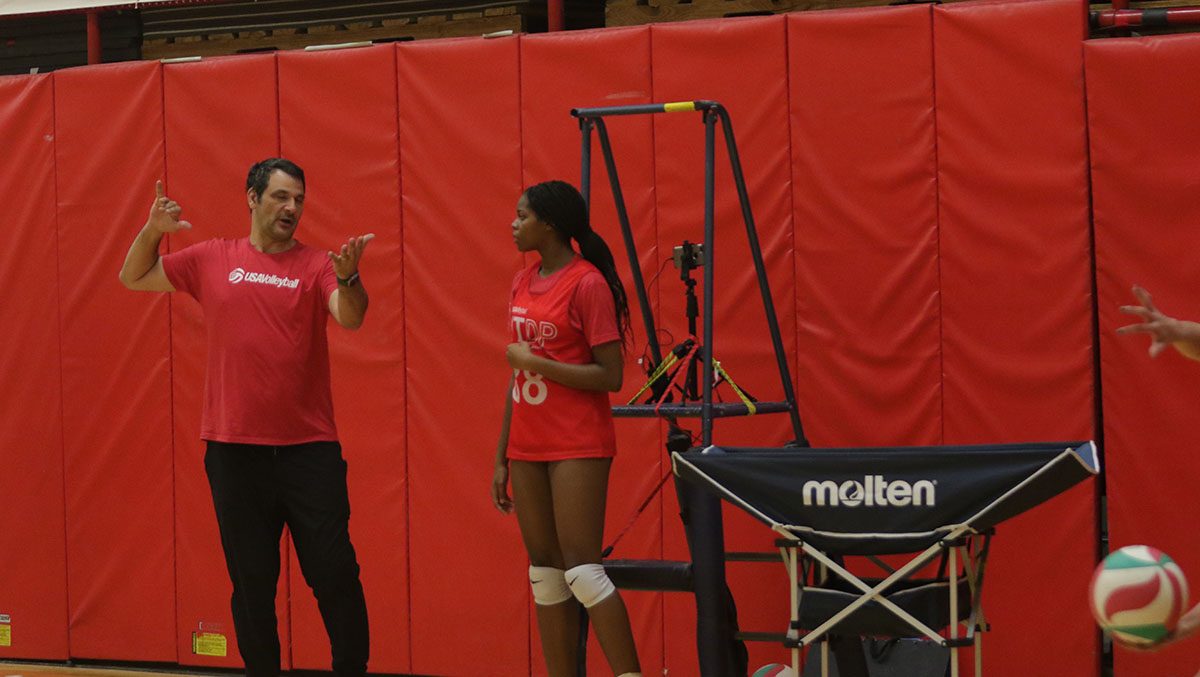
Set Goals That Really Matter
As a volleyball coach, you play a large role in your athletes’ lives, and helping them set realistic, meaningful goals as a team and as individuals is one of the most important parts of a successful season.
Resources for
Follow USAVolleyball
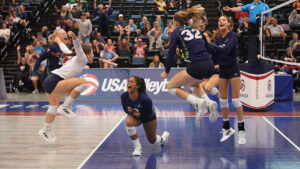 USA Volleyball Education is focused on improving developmental and educational opportunities across the sport of volleyball from grassroots to the national team level. Our goal is to provide the opportunity to access, complete and apply high-quality information and methods in the technical, tactical, physical and emotional aspects of the game for athletes and coaches while providing training, support and resources for other key stakeholders including officials, parents and clubs.
USA Volleyball Education is focused on improving developmental and educational opportunities across the sport of volleyball from grassroots to the national team level. Our goal is to provide the opportunity to access, complete and apply high-quality information and methods in the technical, tactical, physical and emotional aspects of the game for athletes and coaches while providing training, support and resources for other key stakeholders including officials, parents and clubs.
For years, the focus of volleyball in many areas and across various levels shifted to a mindset of winning at all costs.
What we now know is that the most successful teams in the world have developed a model of training and a culture that supports a holistic approach to athlete development which not only sets them up for competitive success on the court, but values and emphasizes the important of athlete health, well-being and long-term involvement in the sport.
The USA Volleyball Development Model was created based on the idea that volleyball in the U.S. could be taught differently, resulting in long-lasting positive outcomes across all measures of performance while keeping kids involved and loving the game longer.
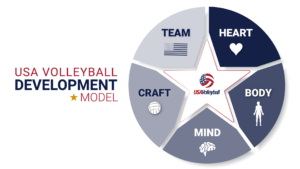
The five pillars of the USA Volleyball Development model provide the basis for a holistic approach to the core elements that are vital to supporting development at every level and across age groups.
USA Volleyball Education is committed to providing support for the volleyball community with a role-based approach to education and training. Whether you’re planning practices, cheering from the stands or making the right call, we provide the tools and resources to help you succeed.
USA Volleyball partner Sports Imports has provided USA Volleyball coaches with drills for use with their Trainer+ and The Vertec.
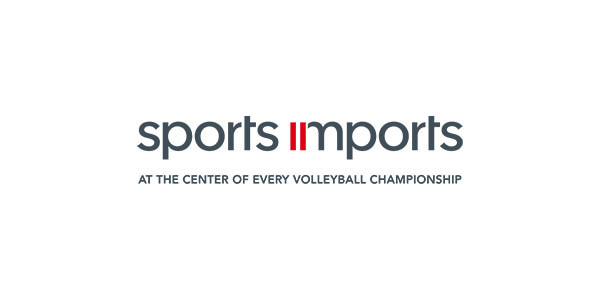

As a volleyball coach, you play a large role in your athletes’ lives, and helping them set realistic, meaningful goals as a team and as individuals is one of the most important parts of a successful season.

Social media usage amongst young athletes is all but guaranteed, and as a coach, you have the difficult task of ensuring that your athletes are using it to enhance team culture rather than spread negativity. It’s tempting to ignore how athletes approach social media, but because it’s a primary method of communication for many of them, it needs to be part of the team culture conversation.

Concussion research is a rapidly evolving field, and over the past several years, there have been a lot of changes in recommendations regarding concussions and their treatment. Newer research shows that some prior recommendations, including prolonged periods of rest, were not helpful for recovery.

TrueSport Expert Kristen Ziesmer, a registered dietitian and board-certified specialist in sports dietetics, shares a few surprising tips and tricks to speed up meal time by meal prepping and making smart menus that provide variety and flavor without hours in the oven.
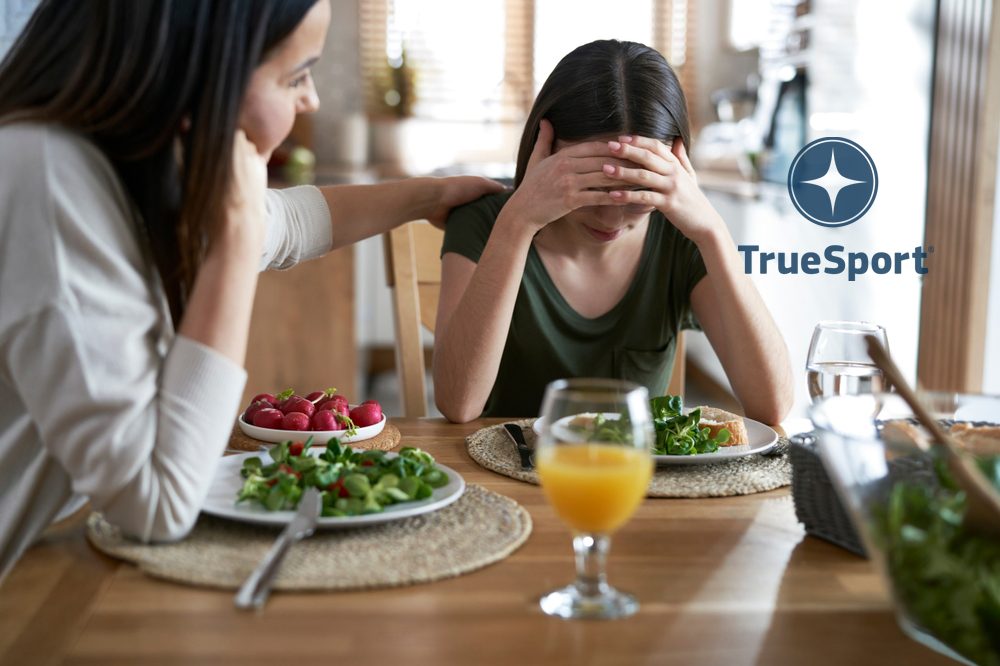
TrueSport Expert and licensed clinical psychologist Dr. Melissa Streno shares some of the most common ‘red’ and ‘yellow’ flag behaviors when it comes to young athletes and body image. Keep in mind that yellow flag behaviors should be taken as seriously as red flag ones.

How can a volleyball player position oneself for meaningful NIL opportunities? Spending time making a plan before becoming a time-strapped college athlete is a great place to start! Ready to jump in? Let’s go.
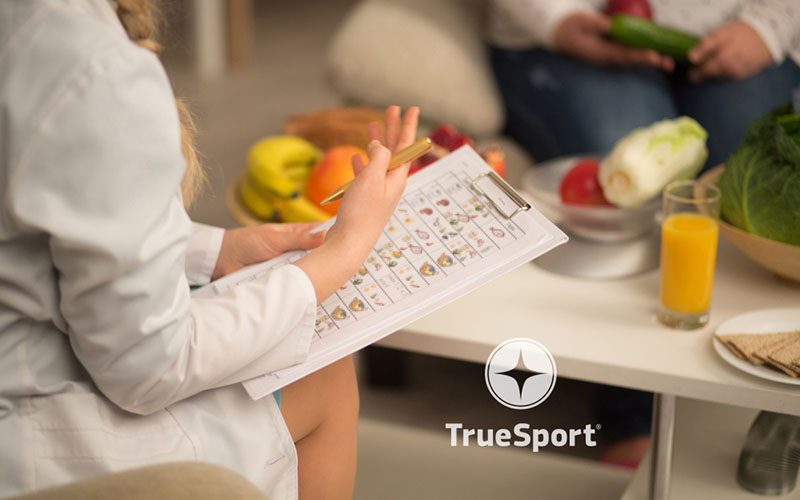
From an offhand comment about what an athlete is eating for breakfast on race day to referring to one athlete on the team as having ’the right build for the sport,’ even casual references to an athlete’s body can have long-term consequences. TrueSport Expert and licensed clinical psychologist Dr. Melissa Streno has recommendations around what to avoid saying or discussing when it comes to eating habits, praise during practice or competition and social media.
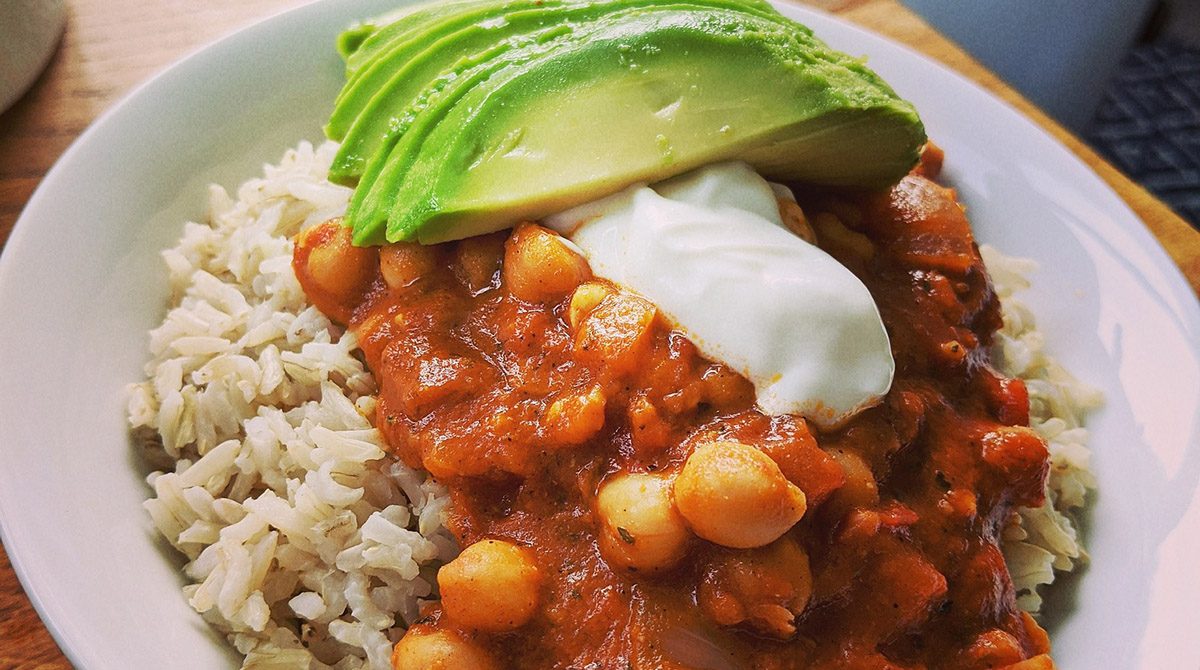
If you’re a busy parent, dump and go meals should be your best friend when it comes to getting nutritious, filling and even budget-friendly meals ready in minutes. The concept is simple: You dump your ingredients together, hit a few buttons, and come home to a just-about-ready-to-serve gourmet meal. All it takes is a little bit of preparation and a pressure cooker or a slow cooker.
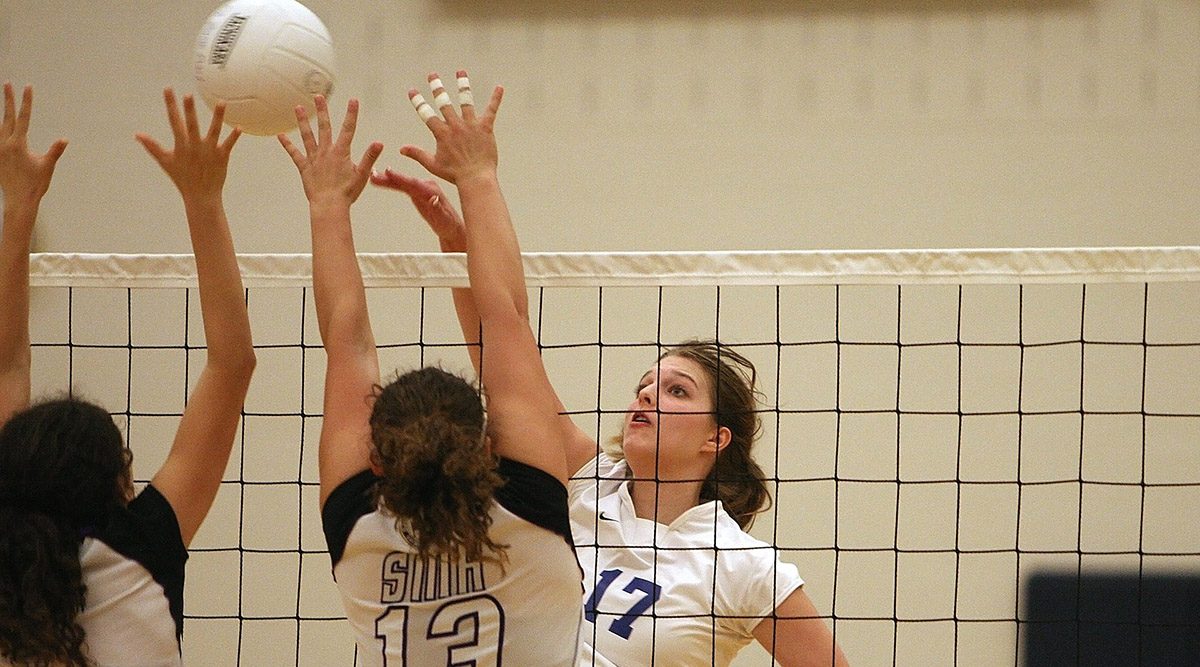
For most, participating in NIL is not a handout but rather a part-time job. It requires dozens, if not hundreds, of hours of research, strategic planning and outreach to be successful. Thus far, the most successful non high-profile athletes have taken the initiative in creating NIL deals for themselves.

Talking about nutrition, especially to young athletes, can feel difficult. Your word choice can make a big difference, and even the most casual conversations can have lasting impacts on your athletes.

USA Volleyball partner Sports Imports has provided USA Volleyball coaches with drills for use with their Trainer+ and The Vertec.
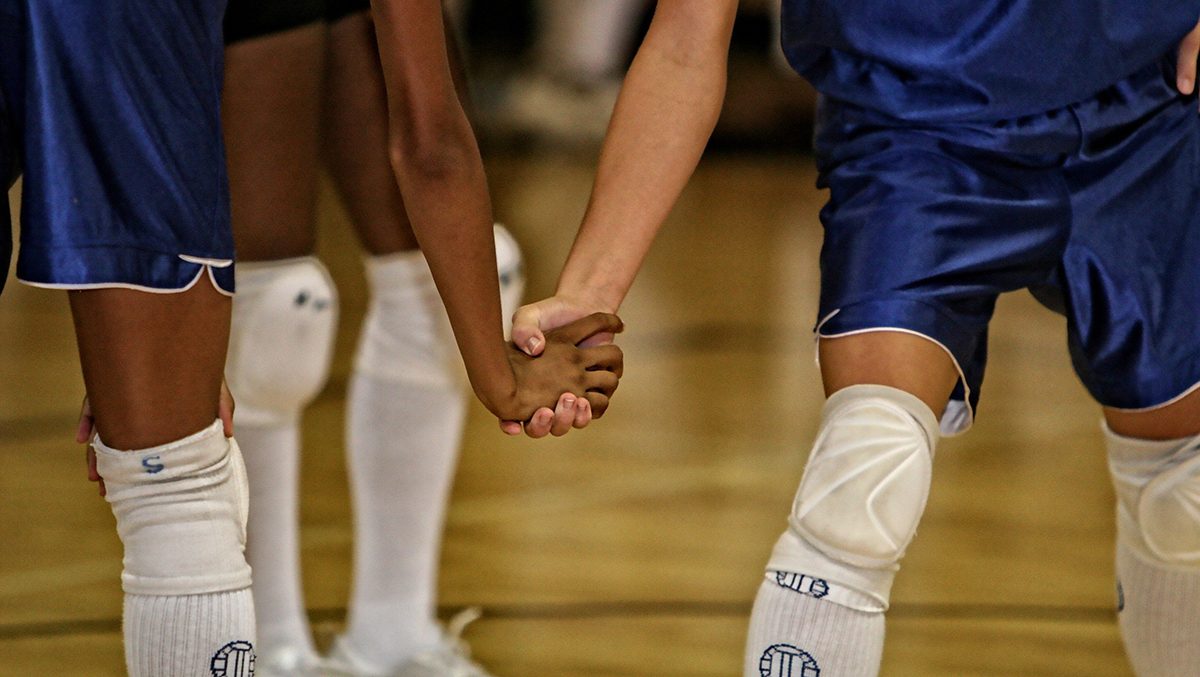
TrueSport Experts Kevin Chapman, PhD, clinical psychologist and founder of The Kentucky Center for Anxiety and Related Disorders, and Nadia Kyba, MSW, the president of Now What Facilitation, share a few important ways that you can help athletes navigate traumatic times and become better prepared for moments like these.
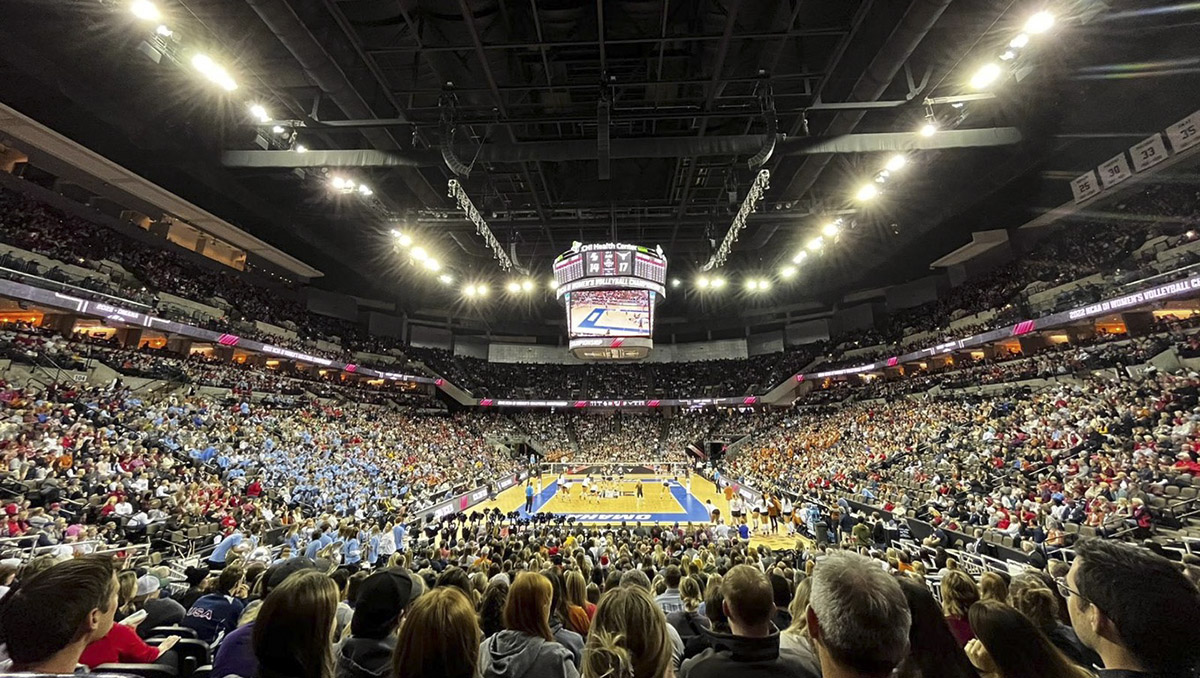
What does NIL really mean and why does it matter? In legal language, name, image, and likeness make up the three pieces of one’s “right to publicity." Michelle Meyer of the NIL Network shares the basics to understanding what NIL means for athletes.
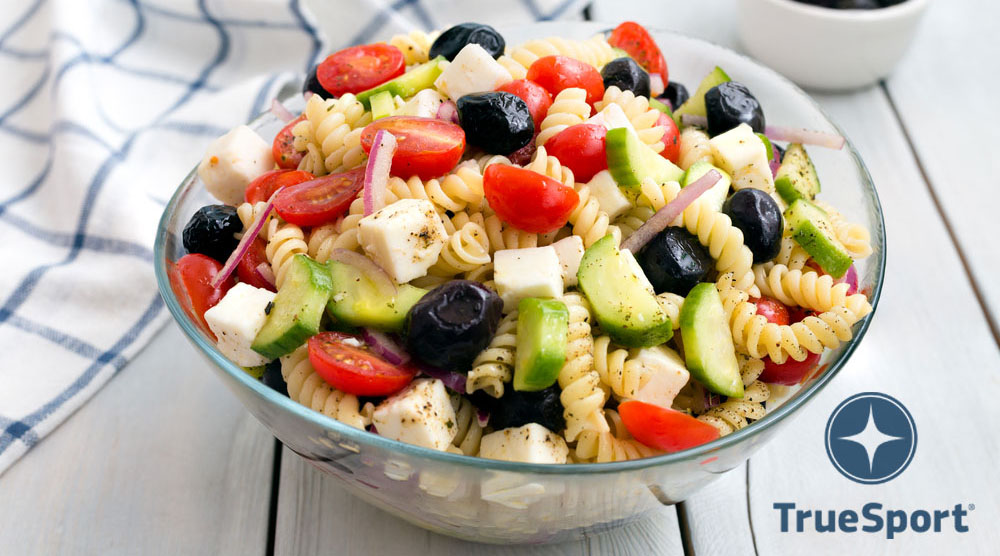
Noodle bowls are one of the most versatile options that busy parents can make to keep athletes well-fed and properly fueled—and most noodle bowls can be repurposed into leftovers for lunch or tweaked into entirely new meals for the next night!
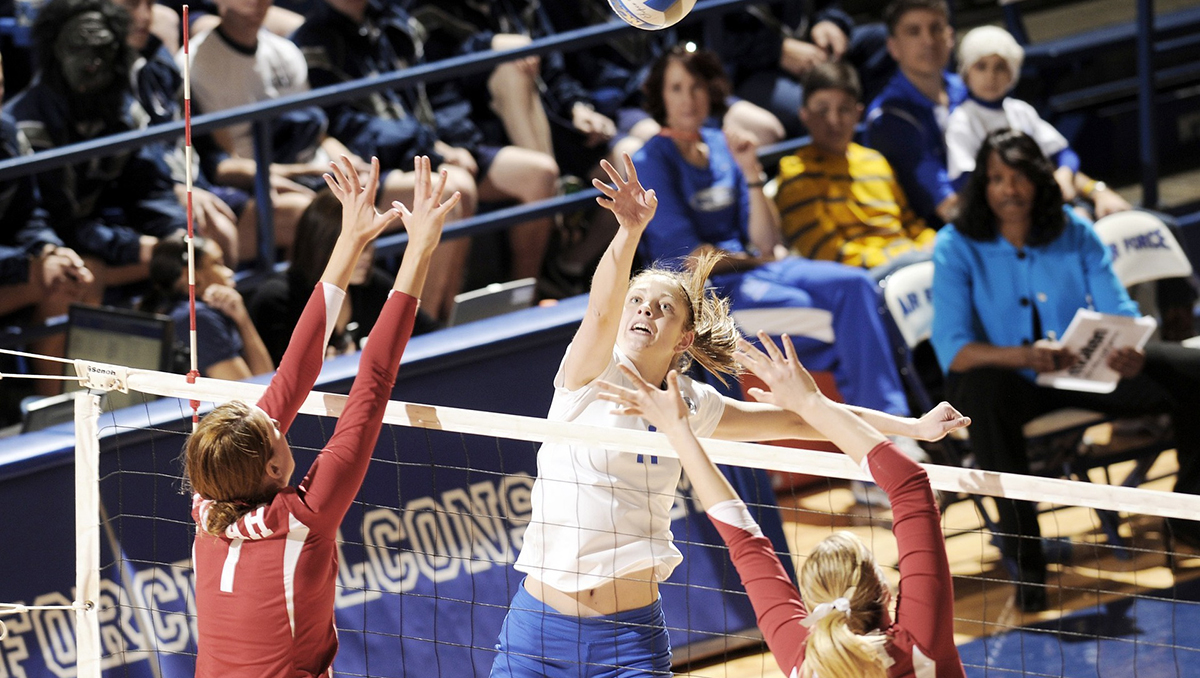
TrueSport Expert Amanda Stanec, PhD, the founder and owner of MOVE + LIVE + LEARN, explains how you can observe behavior in the stands and help move it in a more positive direction when it comes to these three common sideline performances.
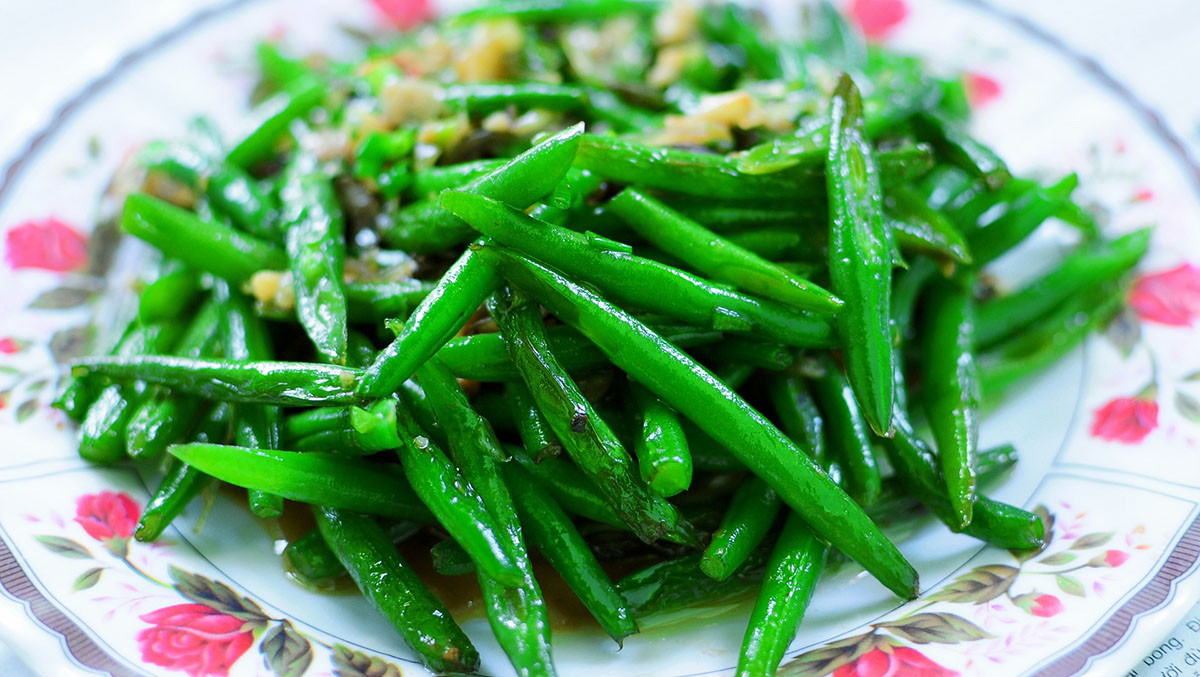
USA Volleyball nutritionists Shawn Hueglin, Emily Barnhart and Brooke Wyatt share four holiday recipes that are tasty and healthy!
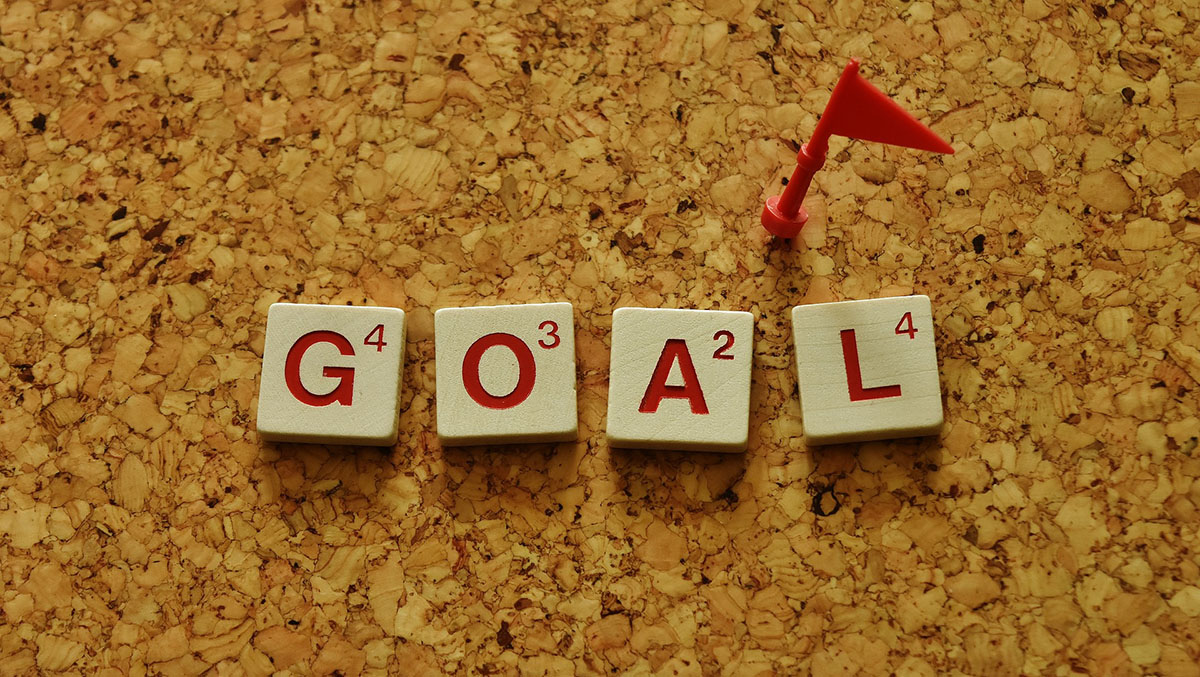
Setting goals outside of sport is important because we want young athletes to not over-identify as athletes, or put too much emphasis into a sport. Learn more about how to help your child set goals that don't involve the volleyball court.
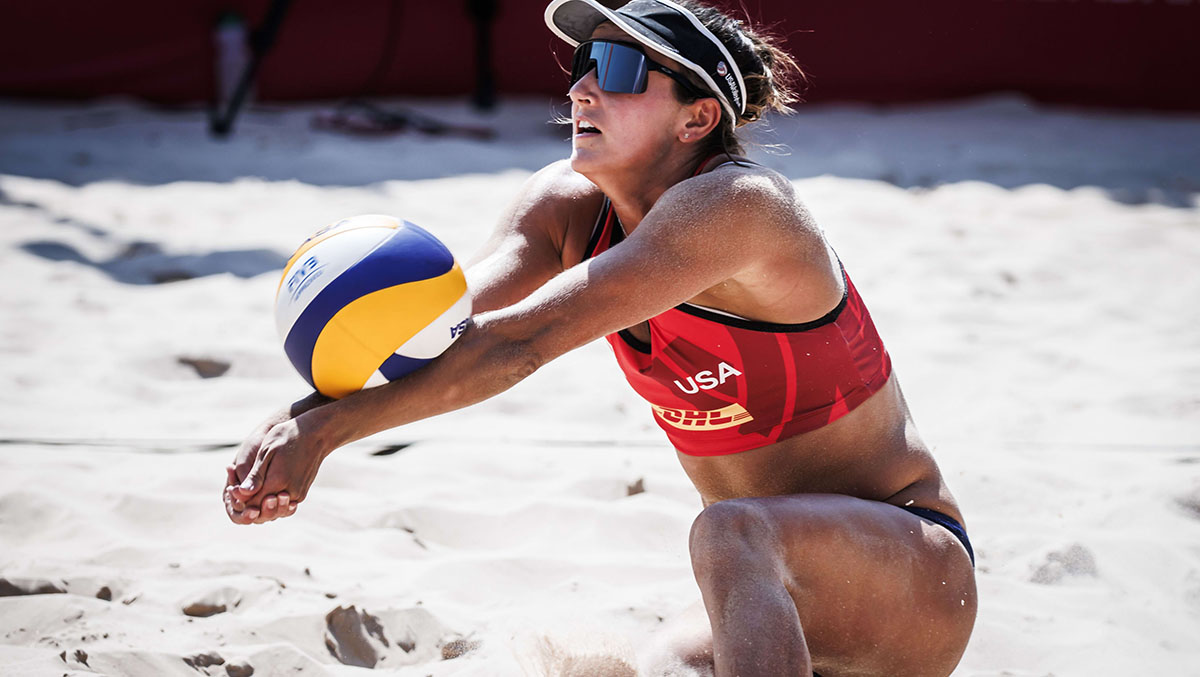
In the Fundamental Beach Skills module within the USA Volleyball Coach Academy, educational provider Beach Nation shares examples of cues, drills and best practices related to coaching fundamental beach skills. Check out this excerpt from the full module.
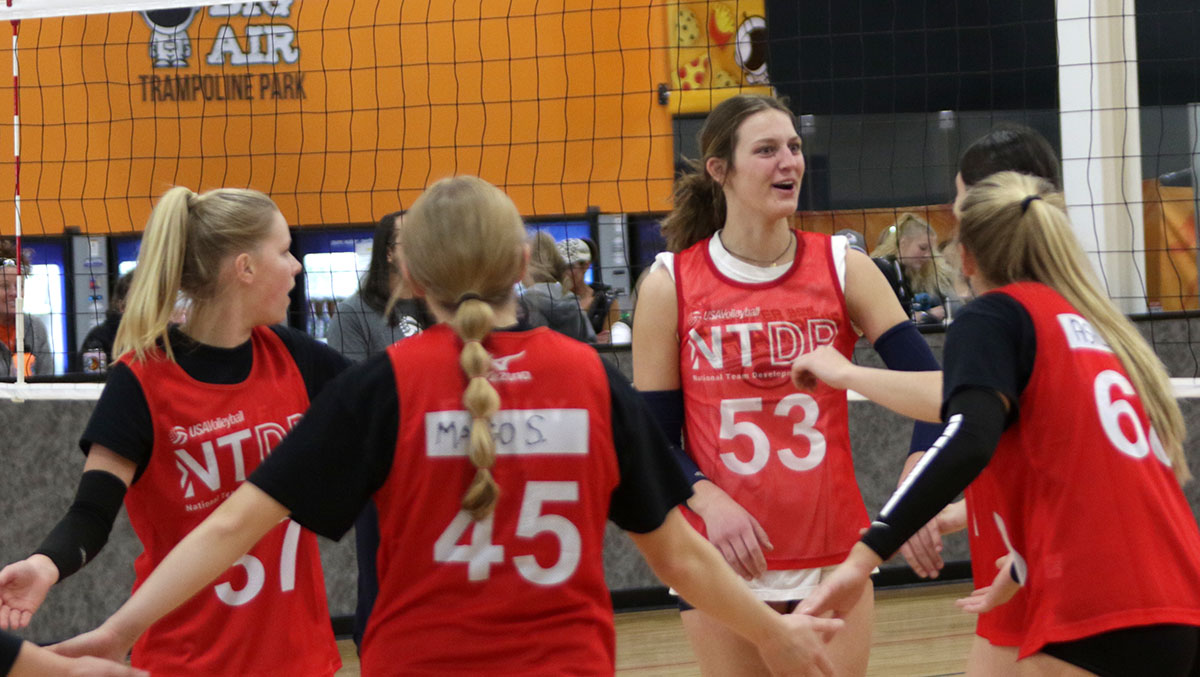
While perseverance sounds like a very serious skill, it can be fun to learn for your young athletes if you make persisting through tough challenges into a playful activity. These activities for every age group will spark conversations around perseverance while encouraging experimentation and play.
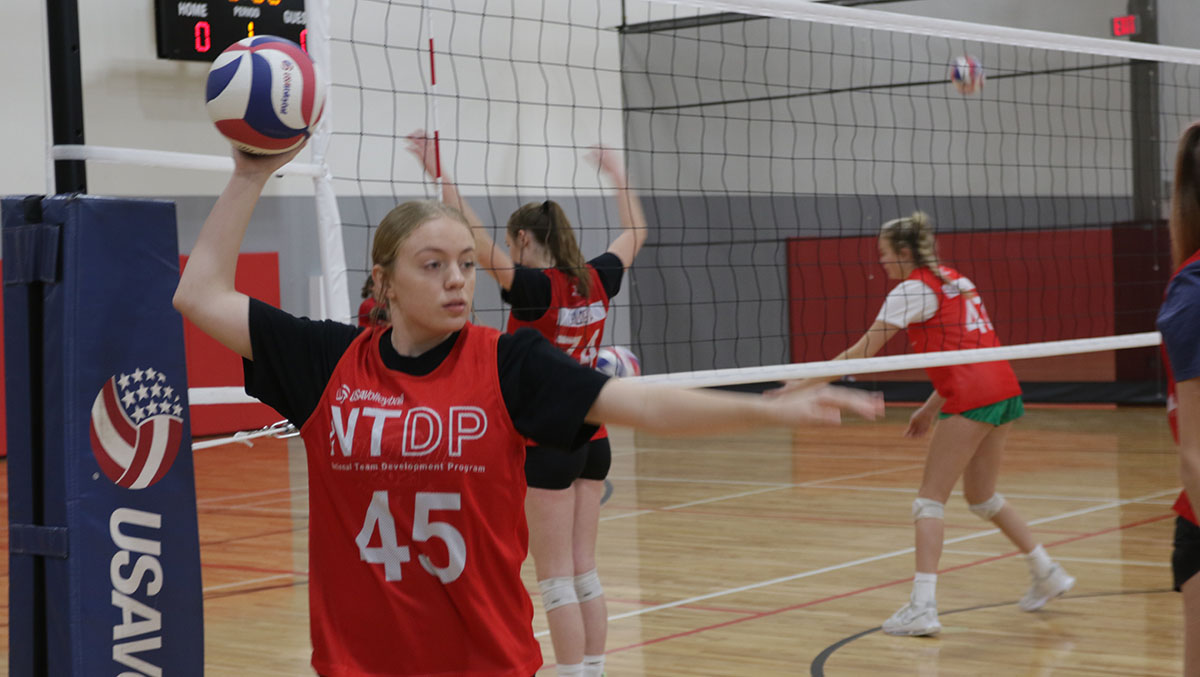
When you coach a young athlete who’s shown ‘natural talent’ or who has committed to one sport, it can be tricky to handle their expectations for their future in sport. Check out these tips on how to handle early high performers and their expectations around success and perceived failures.
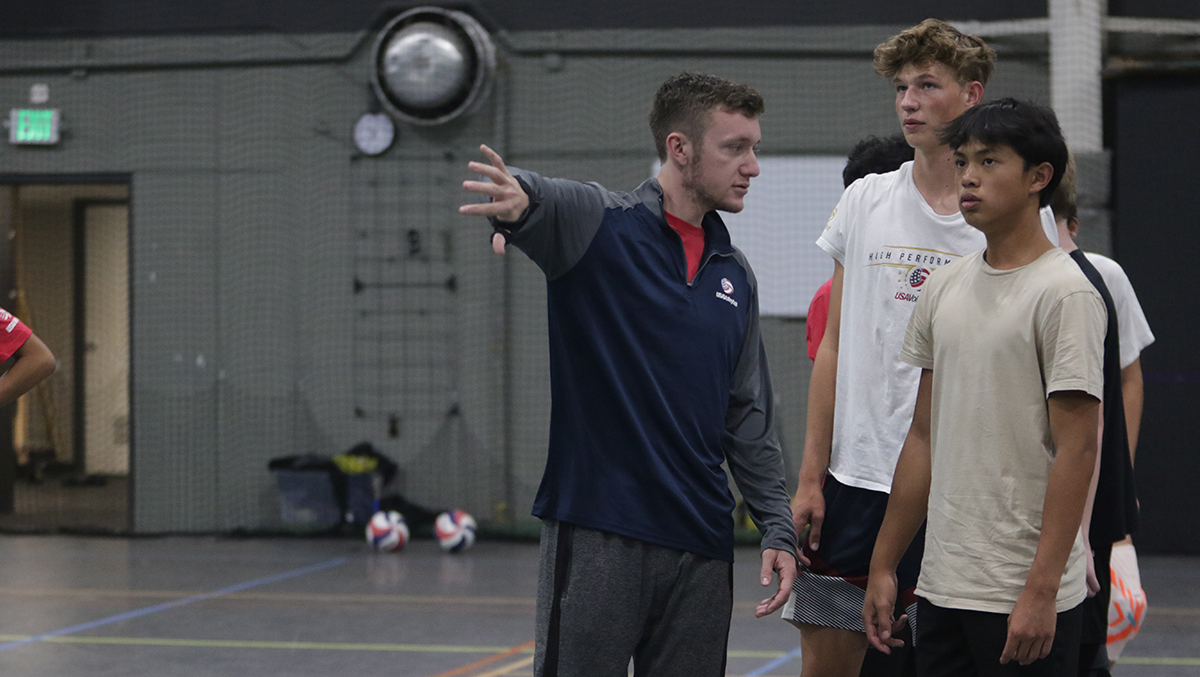
A strong team ensures that every member is receiving necessary feedback—but also feels appreciated and valued. It’s easy to point out what an athlete did wrong in a critical moment during a game. Is there something you could do instead?